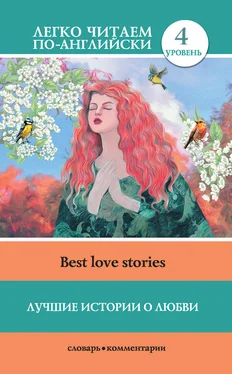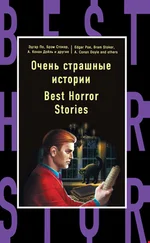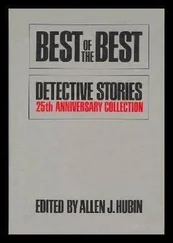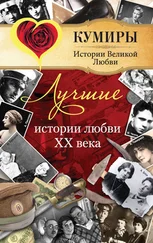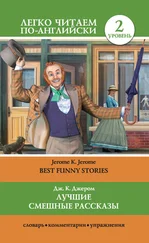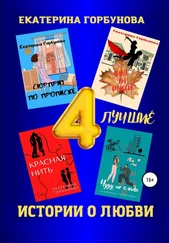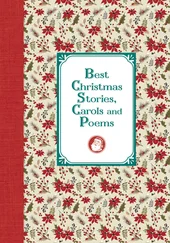1 ...7 8 9 11 12 13 ...29 “You said that you would dance with me if I brought you a red rose,” cried the Student. “Here is the reddest rose in all the world. You will wear it tonight next your heart, and as we dance together it will tell you how I love you.”
But the girl frowned.
“I am afraid it will not go with my dress,” she answered; “and, besides, the Chamberlain’s nephew has sent me some real jewels, and everybody knows that jewels cost far more than flowers.”
“Well, upon my word, you are very ungrateful,” said the Student angrily; and he threw the rose into the street, where it fell into the gutter, and a cart-wheel went over it.
“Ungrateful!” said the girl. “I tell you what, you are very rude; and, after all, who are you? Only a Student. Why, I don’t believe you have even got silver buckles to your shoes as the Chamberlain’s nephew has”; and she got up from her chair and went into the house.
“What a silly thing Love is,” said the Student as he walked away. “It is not half as useful as Logic, for it does not prove anything, and it is always telling one of things that are not going to happen, and making one believe things that are not true. In fact, it is quite unpractical, and, as in this age to be practical is everything, I shall go back to Philosophy and study Metaphysics.”
So he returned to his room and pulled out a great dusty book, and began to read.
The Apple Tree
John Galsworthy
“The Apple-tree, the singing and the gold.”
Murray’s “Hippolytus” of Euripides [62]
In their silver-wedding day Ashurst and his wife were motoring along the outskirts of the moor, intending to crown the festival by stopping the night at Torquay, where they had first met. This was the idea of Stella Ashurst, who was quite sentimental. She had long lost the blue-eyed, flower-like charm, the cool slim purity of face and form, the apple-blossom colouring, which had so swiftly and so oddly affected Ashurst twenty-six years ago, but she was still at forty-three an attractive and faithful companion.
Stella was looking for a place where they might lunch, for Ashurst never looked for anything; and this, with a view into the deep valley and up to the long moor heights, seemed fitting to the decisive nature of one who sketched in water-colours, and loved romantic spots. Grasping her paint box, she got out of the car.
“Won’t this do, Frank?”
Ashurst, rather like a bearded Schiller, tall, long-legged, with large remote grey eyes which sometimes filled with meaning and became almost beautiful, with nose a little to one side, and bearded lips just open – Ashurst, forty-eight, and silent, grasped the lunch basket, and got out too.
“Oh! Look, Frank! A grave!”
By the side of the road was a thin mound of turf, six feet by one, with a moorstone to the west, and on it someone had thrown a blackthorn spray and a handful of bluebells. Ashurst looked, and the poet in him moved. At crossroads – a suicide’s grave! Poor mortals with their superstitions! Whoever lay there, though, had the best of it, no clammy sepulchre among other hideous graves carved with futilities [63]– just a rough stone, the wide sky, and wayside blessings!
Ashurst walked away up on to the road, dropped the lunch basket under a wall, spread a rug for his wife to sit on – she would turn up from her sketching when she was hungry – and took from his pocket Murray’s translation of the “Hippolytus.” He looked at the sky and watching the white clouds so bright against the intense blue, Ashurst, on his silver-wedding day, longed for – he knew not what. And suddenly he sat up. Surely there was something familiar about this view, that ribbon of road, the old wall behind him. While they were driving he had not been taking notice – never did; thinking of far things or of nothing – but now he saw! Twenty-six years ago, just at this time of year, from the farmhouse within half a mile of this very spot he had started for that day in Torquay whence it might be said he had never returned. He felt a sudden ache in his heart; he had stumbled on just one of those past moments in his life, whose beauty and rapture he had failed to check; whose wings had fluttered away into the unknown; he had stumbled on a buried memory, a wild sweet time, swiftly choked and ended. And, turning on his face, he rested his chin on his hands, and stared at the short grass…
And this is what he remembered.
On the first of May, after their last year together at college, Frank Ashurst and his friend Robert Garton were on a tramp. [64]They had walked that day from Brent, intending to make Chagford, but Ashurst’s football knee hurt, and according to their map they had still some seven miles to go. They were sitting on a bank beside the road, resting the knee and talking of the universe, as young men will. Both were over six feet, and thin as rails; Ashurst pale, idealistic, full of absence; Garton simple, well-built, curly, like some primeval beast. Both were interested in literature; neither wore a hat.
Ashurst’s hair was smooth, pale, wavy, and had a way of rising on either side of his brow; Carton’s was a kind of dark mop. They had not met a soul for miles.
A cuckoo began calling from a tree. The sky, the flowers, the songs of birds! Robert was talking nonsense! Ashurst said:
“Well, let’s go on, and find some farm where we can put up.” Saying those words, he saw a girl coming down from the road just above them. She was outlined against the sky, carrying a basket. And Ashurst thought: ‘How pretty!’ The wind, blowing her dark frieze skirt against her legs, lifted her old tam-o’-shanter; her greyish blouse was worn, her shoes were split, her little hands rough and red, her neck browned. Her dark hair waved untidy across her broad forehead, her face was short, her upper lip short, showing a glint of teeth, her brows were straight and dark, her lashes long and dark, her nose straight; but her grey eyes were dewy as if opened for the first time that day. She looked at Ashurst – perhaps he struck her as strange, limping along without a hat, with his large eyes on her, and his hair falling back. He could not take off what was not on his head, but put up his hand in a salute, and said:
“Can you tell us if there’s a farm near here where we could stay the night? I’ve gone lame.”
“There’s only our farm near, sir.” She spoke without shyness, in a pretty soft clear voice.
“And where is that?”
“Down here, sir.”
“Would you put us up?”
“Oh! I think we would.”
“Will you show us the way?”
“Yes, Sir.”
He limped on, silent, and Garton asked:
“Are you a Devonshire girl?”
“No, Sir.”
“What then?”
“From Wales.”
“Ah! I thought you were a Celt; so it’s not your farm?”
“My aunt’s, sir.”
“And your uncle’s?”
“He is dead.”
“Who farms it, then?”
“My aunt, and my three cousins.”
“But your uncle was a Devonshire man?”
“Yes, Sir.”
“Have you lived here long?”
“Seven years.”
“And how do you like it after Wales?”
“I don’t know, sir.”
“I suppose you don’t remember?”
“Oh, yes! But it is different.”
“I believe you!”
Ashurst broke in suddenly: “How old are you?”
“Seventeen, Sir.”
“And what’s your name?”
“Megan David.”
“This is Robert Garton, and I am Frank Ashurst. We wanted to get on to Chagford.”
“It is a pity your leg is hurting you.”
Ashurst smiled, and when he smiled his face was rather beautiful.
Descending past the narrow wood, they came on the farm suddenly – a long, low, stone-built house in a farmyard. A short grass hill behind was crowned with a few pines, and in front, an old orchard of apple trees, just breaking into flower, stretched down to a stream and a long wild meadow. A little boy with dark eyes was shepherding a pig, and by the house door stood a woman, who came towards them. The girl said:
Читать дальше
Конец ознакомительного отрывка
Купить книгу
